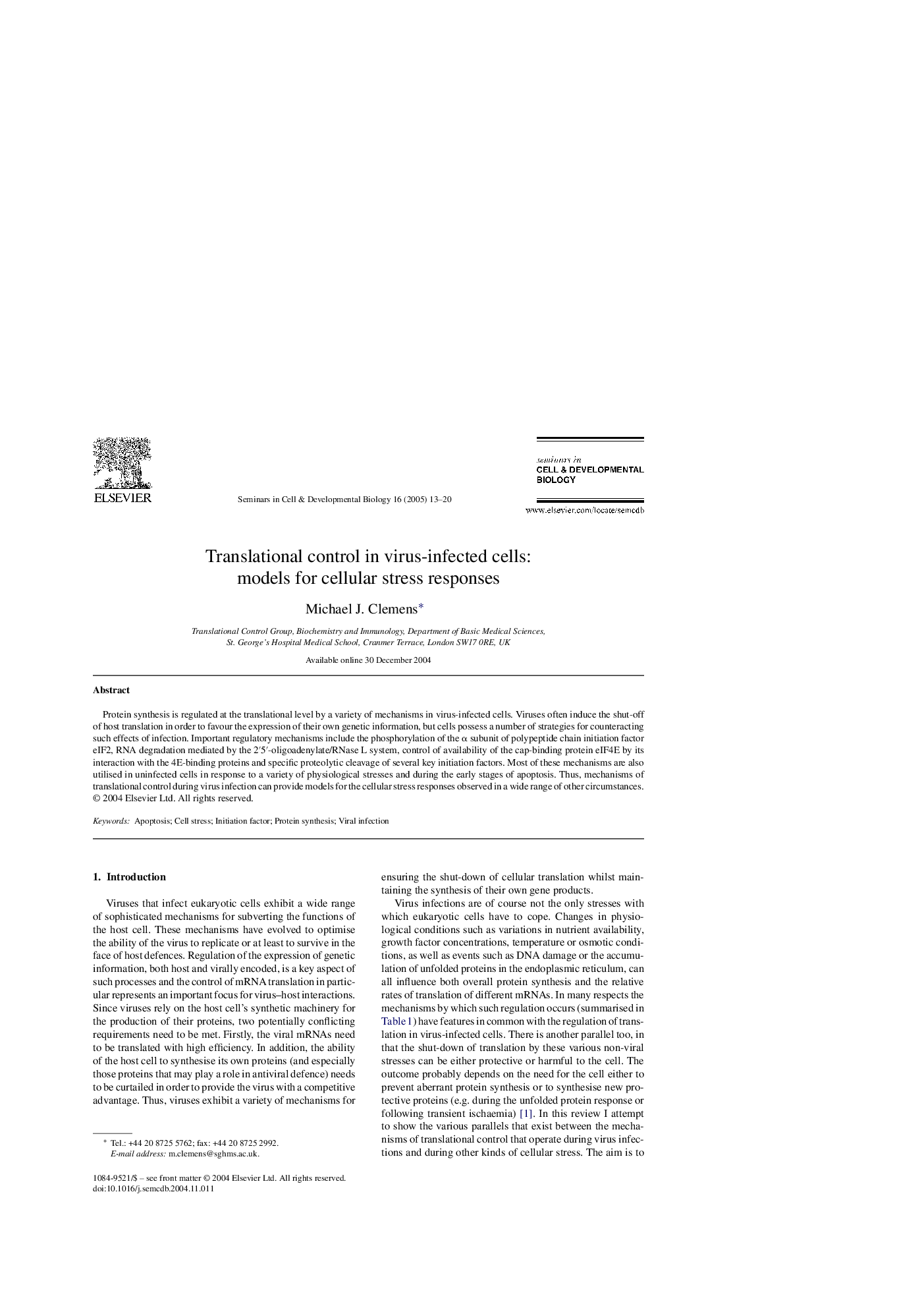| Article ID | Journal | Published Year | Pages | File Type |
|---|---|---|---|---|
| 10959576 | Seminars in Cell & Developmental Biology | 2005 | 8 Pages |
Abstract
Protein synthesis is regulated at the translational level by a variety of mechanisms in virus-infected cells. Viruses often induce the shut-off of host translation in order to favour the expression of their own genetic information, but cells possess a number of strategies for counteracting such effects of infection. Important regulatory mechanisms include the phosphorylation of the α subunit of polypeptide chain initiation factor eIF2, RNA degradation mediated by the 2â²5â²-oligoadenylate/RNase L system, control of availability of the cap-binding protein eIF4E by its interaction with the 4E-binding proteins and specific proteolytic cleavage of several key initiation factors. Most of these mechanisms are also utilised in uninfected cells in response to a variety of physiological stresses and during the early stages of apoptosis. Thus, mechanisms of translational control during virus infection can provide models for the cellular stress responses observed in a wide range of other circumstances.
Related Topics
Life Sciences
Biochemistry, Genetics and Molecular Biology
Cell Biology
Authors
Michael J. Clemens,
